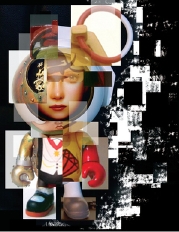 In an article in KMWorld Magazine, Dave Snowden writes that “everything is fragmented.” Further, he writes of a shift (in the world of knowledge management) to:
In an article in KMWorld Magazine, Dave Snowden writes that “everything is fragmented.” Further, he writes of a shift (in the world of knowledge management) to:
… the unstructured, fragmented and finely granular material that pervades the blogosphere. … In the world of fragmented knowledge, the individual must gather at the point of need knowledge fragments from a variety of informal sources (e.g., colleagues, blogs, wikis, etc.) and then blend that information on the fly to reach conclusions and take action.
Snowden talks about how the standard practice of knowledge management has been to structure knowledge and place in hierarchical taxonomies. But that approach doesn’t allow knowledge to be adapted well to change, Snowden asserts. Instead:
… In the world of fragmented knowledge, the individual must gather at the point of need knowledge fragments from a variety of informal sources (e.g., colleagues, blogs, wikis, etc.) and then blend that information on the fly to reach conclusions and take action.
To skeptics, Snowden asks:
Faced with an intractable problem, do you go and draw down best practice from your company’s knowledge management system, or do you go and find eight or nine people you know and trust with relevant experience and listen to their stories? With the odd exception … everyone goes for the stories.
I think of A Storied Career as a knowledge-management system, primarily for myself, but also for anyone else whose storytelling interests are similar to mine. It’s a repository for all the bits of fragmented information. I don’t really attempt to organize and structure the fragmented bits much beyond placing entries in categories (with “Storytelling — Other” probably the predominating category). It’s not structured, but I know it’s all here as a repository of the expanding body of knowledge of aspects of applied storytelling that interest me. (I also like how blogger “Dr. Pew” describes blogging as “a means to process things.”) Apparently, according to Snowden, I am engaging in a naturalistic form of knowledge management:
It’s not natural to chunk up material, to make it context specific; it is natural to share, blend and create fragmented material based on thoughts and reflections as we carry out tasks or engage in social interaction.
And apparently, my style and that of millions of bloggers like me aligns with the way Snowden believes organizations need to move away from old, entrenched modes of non-ambiguity, whereas:
Narrative, social computing, the open source movement are all comfortable with ambiguity, embrace it and use it. Organizations need to do the same, but the old patterns of control persist beyond their natural utility.
